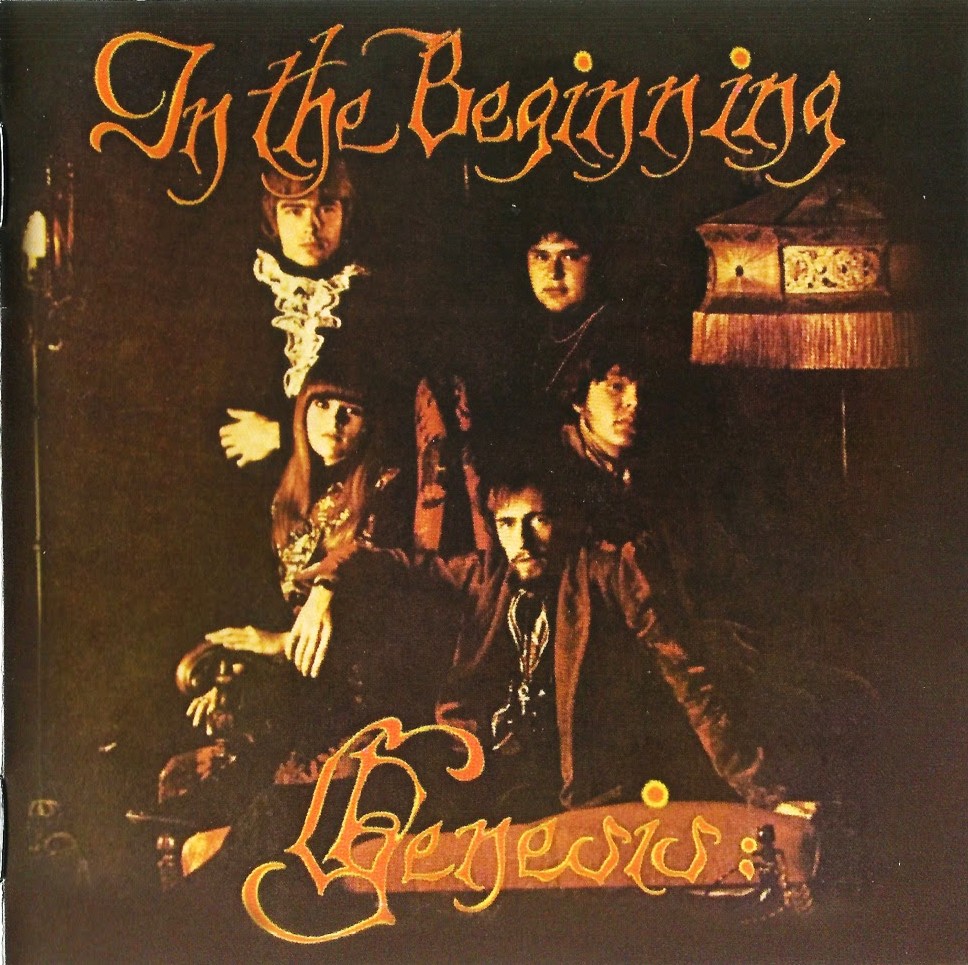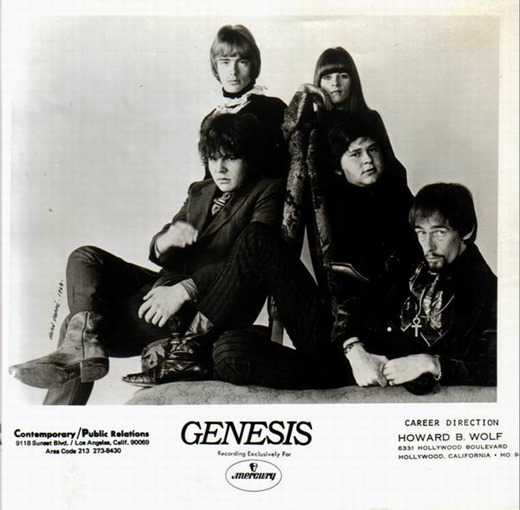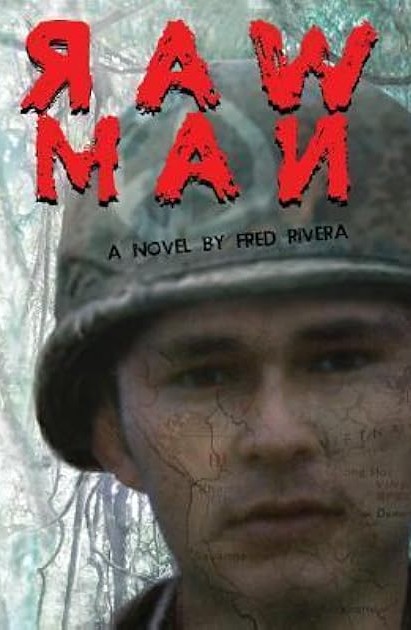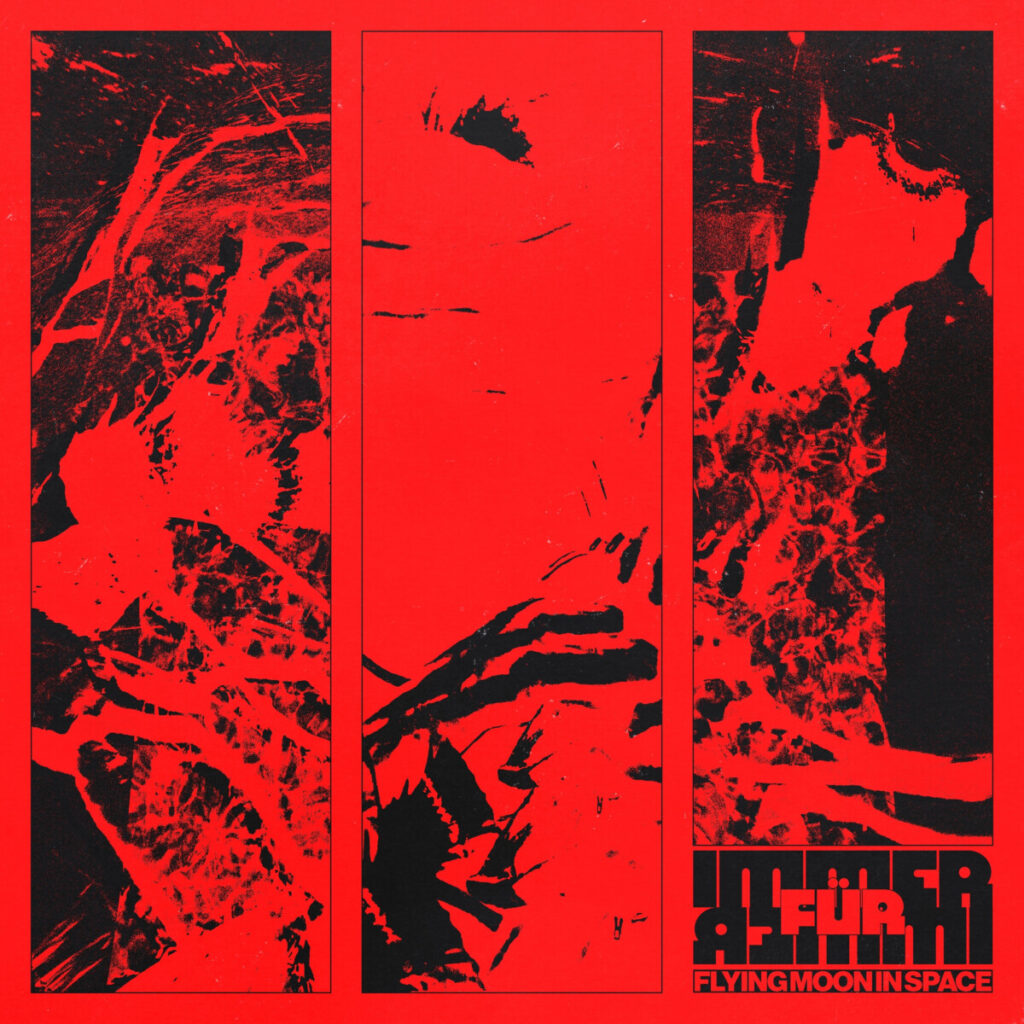Vinyl Relics: In the Beginning by Genesis
Vinyl Relics: In the Beginning by Genesis
Hands up if you knew actor Edward James Olmos was in a band. This is the kind of information tidbit that floats around in the otherwise empty space of my brain. But like that odd-shaped screw that’s been gathering dust in my bin of other odd-shaped screws, someday it’s going to come in handy.
Random party guest: “Great party, eh?”
Me: “Yeah, nice place too”.
RPG: “Did you see this guy’s man cave?? I love that Blade Runner poster!”
Me: “Did you know Edward James Olmos was in a band?
That’s the fun part about interviewing musicians. No matter how much you’ve researched your subject before the interview, there’s always something they might spring on you that catches you off guard.
If it weren’t for guitarist/singer/songwriter Jack Ttanna, the world may never have heard of Edward James Olmos. Back then, you see, he was known as Eddy James and was fronting a band called The Pacific Ocean. Jack poached his guitarist, Kent Henry, and bassist “Foxy” Fred Rivera for his new band, Genesis. No, not THAT Genesis.
My guest for this epysode was Fred Rivera, and my first question was how he got the nickname “Foxy Freddie”. It turns out it was Olmos who anointed him “Foxy” after they stole a promo copy of an album from a wannabe band manager. The album contained songs by an artist no one knew at the time – some cat named Jimi Hendrix. Live covers of “Foxy Lady” soon morphed into “Foxy Freddie”, and the name stuck.
When Rivera and Kent Henry bolted for Genesis, Olmos’s band forged on for a bit longer before Olmos gave up music for acting. He went on to a fair amount of fame, much more so than the band Genesis ever did. No, not THAT Genesis.
The Genesis I’m referring to was a 5-piece from LA led by Jack Ttanna who, along with Rivera and Henry, recruited singer Sue Richman and drummer Bob Metke. They had a West Coast sound with male-female vocals that were often compared to Jefferson Airplane.
Though their music has no religious aspect to it, they decided to expand on the biblical theme by choosing a title directly from the Good Book–the first three words of Chapter 1. And instead of using the boring “Side A/Side B”, they chose “Book One/Book Two”.
The opening track immediately shows the Hendrix influence, with the loud eruption of an opening E9 chord for the song “Angeline”, which definitely should have been a hit.
If I could wave my magic wand and remove two tracks from this album, they’d be “Girl Who Never Was” and “Mary, Mary”. Both are out of place here. That aside, the rest of the album is fantastic. Kent Henry is an underrated guitarist (If you don’t believe me, check out the solo to Blues Image’s “Ride Captain Ride”— that’s him!), and he cuts loose throughout this record with some great fuzzy psych leads. The rhythm section is solid, too, with some creative bass runs and hammering drums.
Like many bands from the era (and the area), harmonies play a starring role throughout. Jack and Sue’s voices blend well with drummer Bob Metke pitching in here and there for some sweet three-part harmony.
One of the standout tracks is “Ten Second Song”, which is, confusingly, two minutes and fifty-eight seconds long. Fred explained that the song was written by Kent and was only the second one he had ever composed. He tentatively titled it “Kent’s Second Song”, but someone along the way misread it as “Ten Second Song”, and it stuck.
There’s a great folk-rock interpretation of Leonard Cohen’s “Suzanne”. “Gloomy Sunday” showcases Sue Richman’s strong vocal talents. Fred recalled that she was still in high school at the time, and the producer spent some time coaching her to get the emotion right. It worked, and it’s another highlight here.
They save the best for last with an epic 16-minute track called “World Without You”, which showcases all the band’s strengths. While longer tracks were becoming prominent at the time, they were often self-indulgent and would become tedious after a few minutes. But not here. The band manages to hold the listener’s attention throughout. Apparently, during their live shows, Freddie said this is the one that got the best feedback from fans.
With great songwriting and tight musicianship, their debut album is a strong one that showcases their immense talent. It’s a shame they never got the chance to record a follow-up.
"Foxy" Fred Rivera Now
Both Freddie and guitarist Kent Henry received their draft notices on the same day. While Henry managed to avoid service, Freddie wasn’t so lucky. He spent eight months in combat in the Vietnam jungle and told me some stories that were simply horrifying. Luckily, a freak injury allowed him a few weeks of reprieve at a hospital in Saigon. There, he learned about a division of the Army called Special Services. He relayed the story:
“I walked into the office and said I wanted a job. The guy said ‘This is the US Army, you can’t just request a job. And besides, we couldn’t use you unless you were a musician. ‘I AM a musician’, I told him. He said ‘Yeah, but we’re only looking for bass players. ‘I AM a bass player!’, I said. He pointed down the hall and told me to meet the other guys. I picked up the bass and we played “Johnny B. Goode”. After one song, I was in the band”.
With his fortuitous break, he was able to escape combat by playing shows with this band and entertaining his fellow servicemen.
By the time he got back to the States, Genesis (the US version) was no more.
Oh, and the name? He did recall the story about how his manager told him that he had received a call from “some guy named Peter” from England who asked if his band could use the name. Since the US Genesis was no more, their manager gave the UK Genesis permission.
Freddie dabbled in music after Genesis, teaming up with guitarist Kent Henry again for an album backing Delaney Bramlett. Kent Henry, as mentioned, went on to join Blues Image and also Steppenwolf. Sue Richman performed with a few short-lived bands in the 1970s before establishing herself as a sought-after singer and voiceover artist for commercials, lending her voice to campaigns for Juicy Fruit, IHOP, Kawasaki, and many others.
When Freddie was in Vietnam, he would often write letters home, sugarcoating his experiences to lessen his parent’s worries. Decades later, when he and his sister were cleaning out their parents’ belongings, they stumbled across the old letters that his mom had kept. He read them and decided to write a book. The result is “Raw Man” (which is “Nam War” backward). It’s a harrowing recount of his time in combat, telling the “real” story juxtaposed against the censored version he wrote home to his folks. It’s an incredibly well-written book that has won numerous awards, and I recommend it highly.
I also recommend In the Beginning, the album he created with his Genesis bandmates. If you’re a fan of West Coast psych, this one will not disappoint. They certainly didn’t achieve the heights of their namesake band, but they did create one under-the-radar album that’s worth exploring.
If you want to hear the story of the band with a track-by-track dive into each song with help from Foxy Freddie himself, tune in, turn on, and drop by Vinyl Relics on Apple, Spotify, or any other podcast platform. Vinyl Relics is a podcast for groovy people who like music and each epysode features a treasure that time has forgotten. In The Beginning is epysode #41.
Gallery
Recent Articles
Can Molly Mend Your Marriage?
•
February 16, 2026
Immer Für Immer by Flying Moon in Space–Album Review
•
February 13, 2026

Loading...






